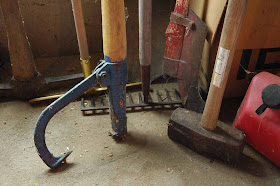
The poet Donald Finkel died last week. You can read an obituary
here, or the New York Times' version
here.
When I was a student at Washington University, St. Louis in the 1960's, he was teaching Creative Writing. The university was swirling with writers at the time: Stanley Elkin, William Gass, Howard Nemerov, John N. Morris, with visits by Robert Creeley, John Hartford (singer-songwriter), many more - I even met Cyprian Ekwensi, the Nigerian writer. I had classes with Elkin, heard a stunning reading by Gass, had lunch with Creeley, sang along with Hartford and soaked up the roots of my writing knowledge from all of them.
Donald Finkel was kicked out of high school for playing hooky, and he was expelled from the University from Chicago for smoking marijuana. He taught the best Creative Writing class I ever took. He forgave me for skipping classes, and I may have shared a joint with him at some point - I can't recall. As they say, if you can remember the 60's, you weren't really there.

In Don Finkel's class, I wrote my first novel. It's never been published. Finkel loved it. My own take on it, looking back, is that it was extremely well-written (a credit to Finkel), an exuberant ode to freedom and adventure, but that I was too inexperienced in life, too young, lacking the wisdom that is the other half of writing - the understanding of the world, of how life really plays out.
Life played out pretty well for Don Finkel. I'm sorry it's over.
“The Ape Who Painted”
Toward the end of his painting career, Congo was
producing excellent circles, but nearly always filled them
in immediately.
–Alexander Alland, Jr.,
The Artistic Animalfrom time to time he would pause
to examine an apple, turning it
in his long, sensitive fingers, or fish
a dust-mouse gently from under his bed
not a hair displaced
or moon for hours, sprawled on his favorite tire
praying to his thumb
how fortunate we are to have captured on film
this miraculous thumb, in full career
sweeping in a great assured arc from left to right
trailing a gleaming Indian Red parabola
counterclockwise, following its own law
tailing up again, toward its beginning
deftly dividing out from in
then filling carefully the bowl of zero
with precious red, horizon to horizon
toward the end, the painter’s cage was strewn
with fallen suns, great bloody periods
pages from some cosmic calendar
while he grew more taciturn than ever.
–Donald Finkel
From:
What Manner of Beast





























